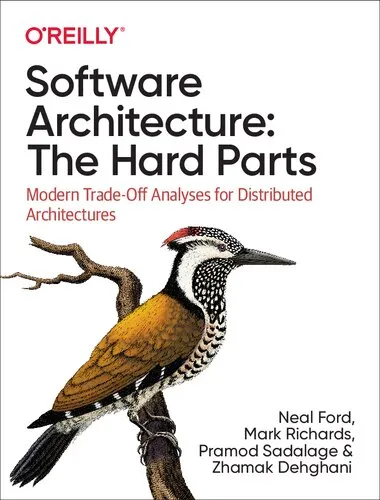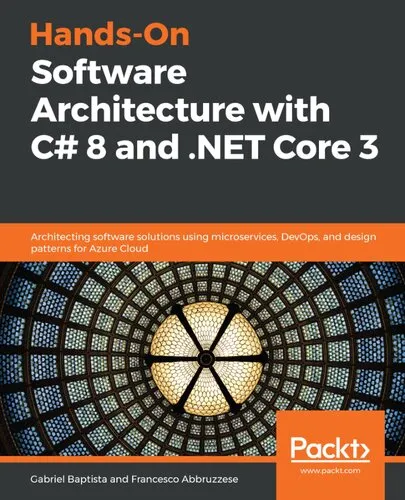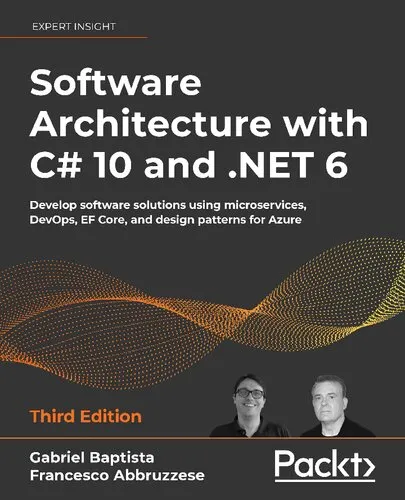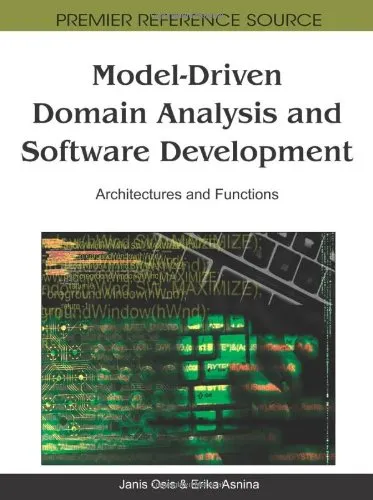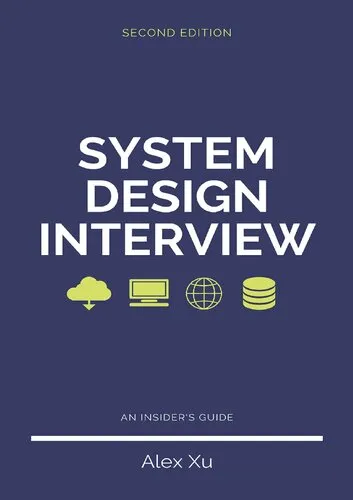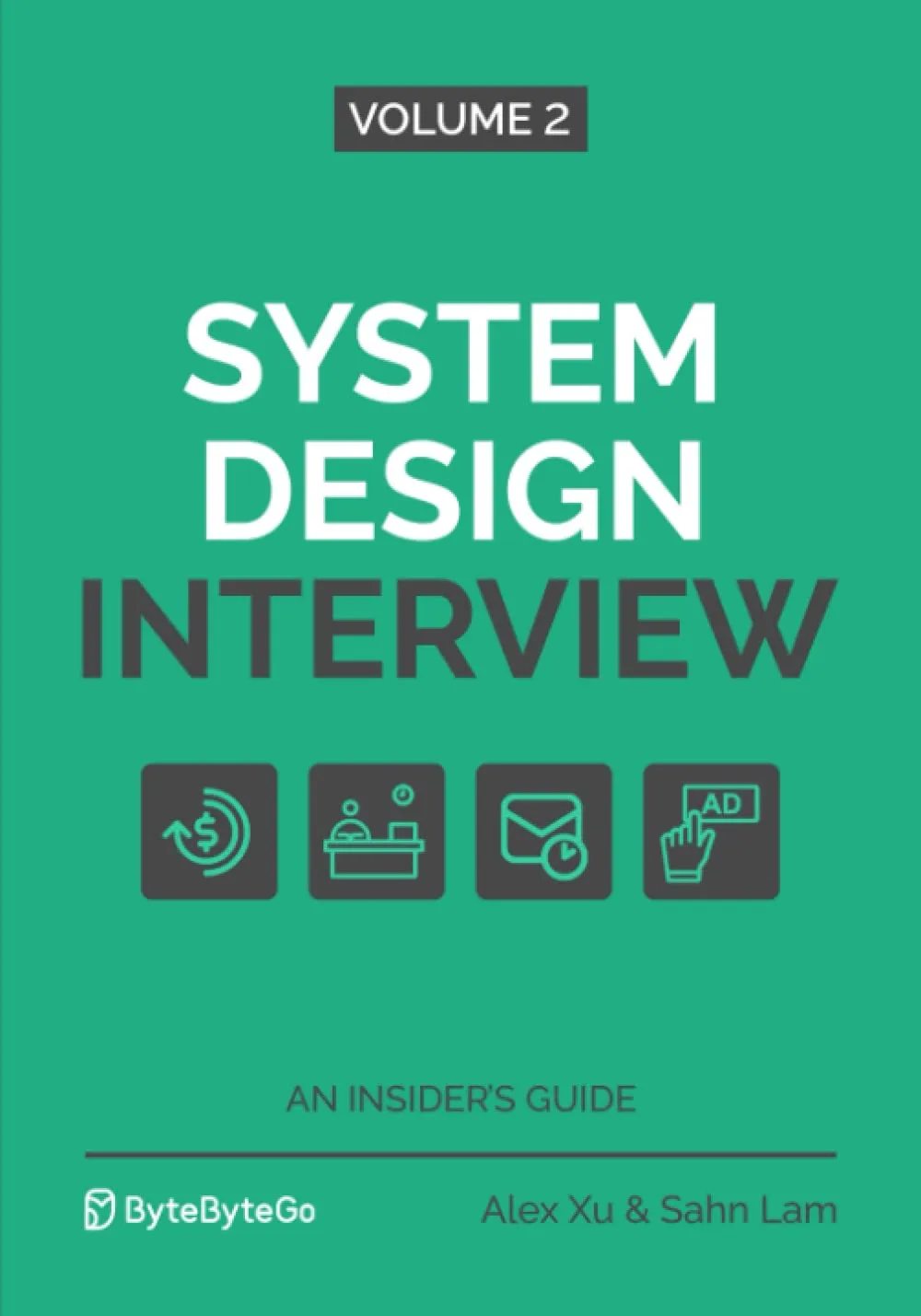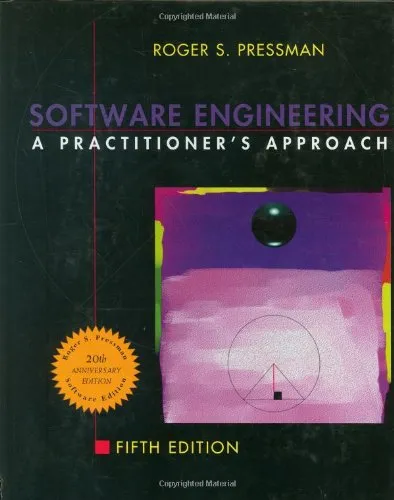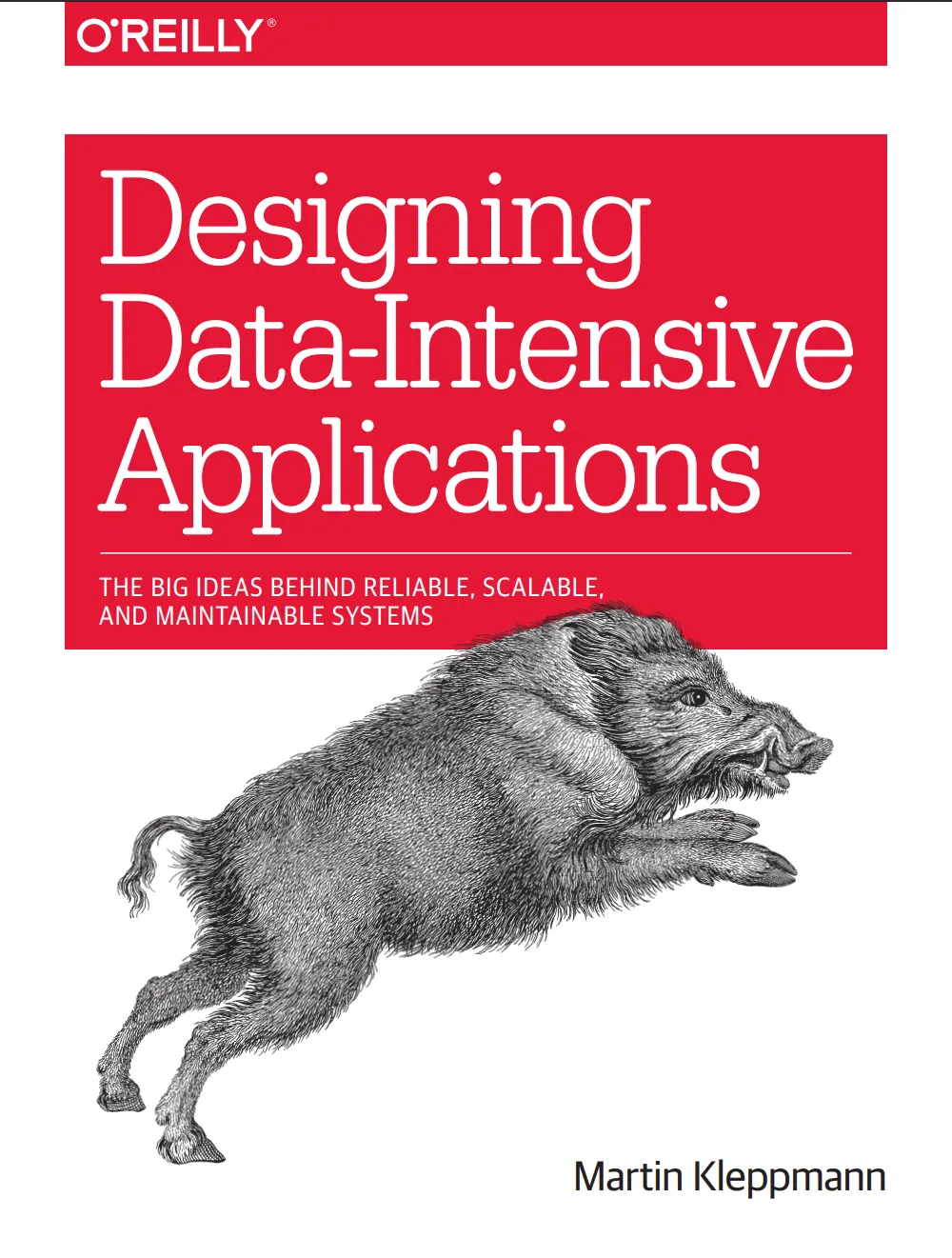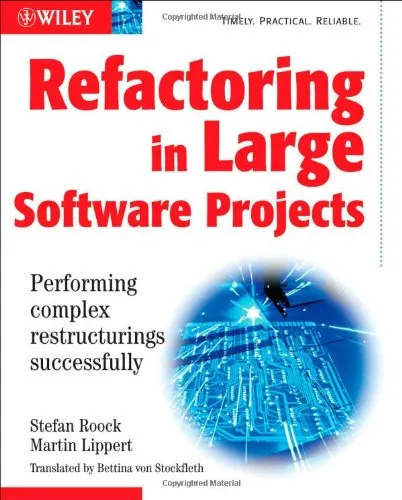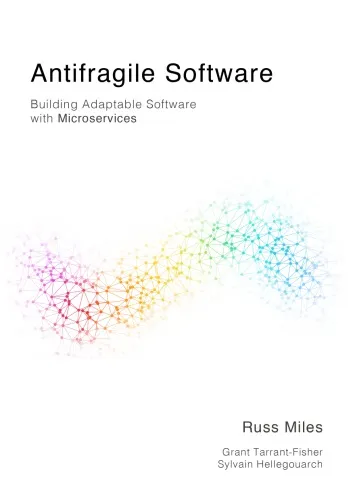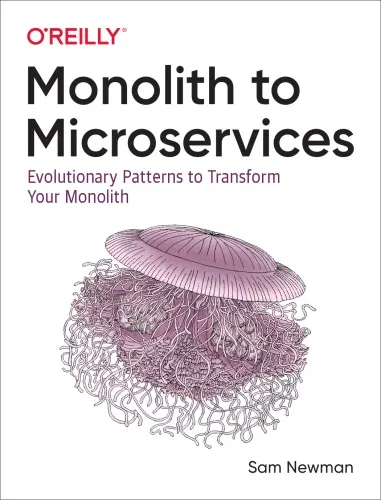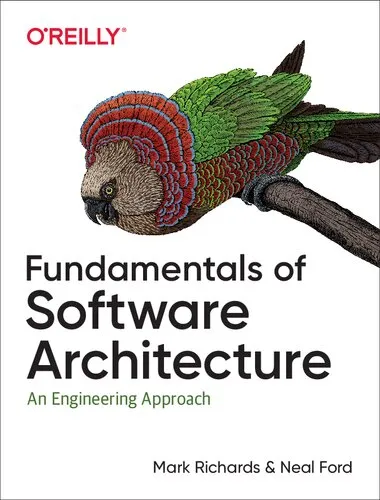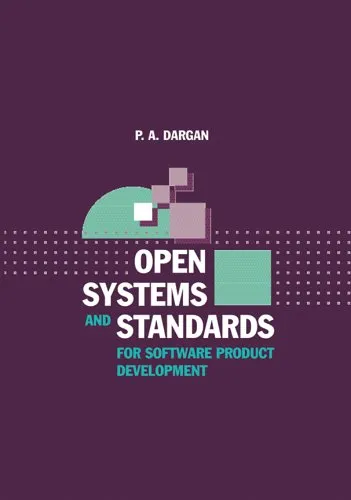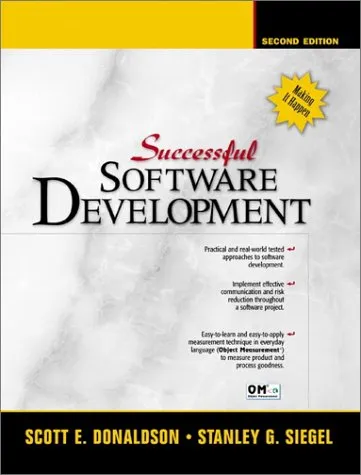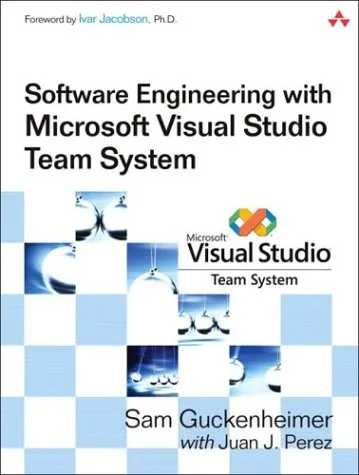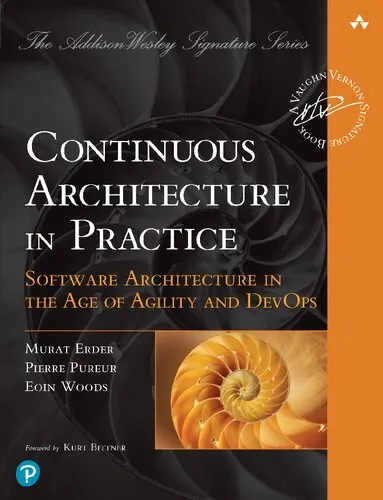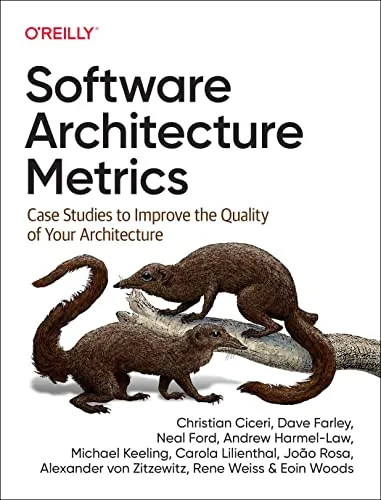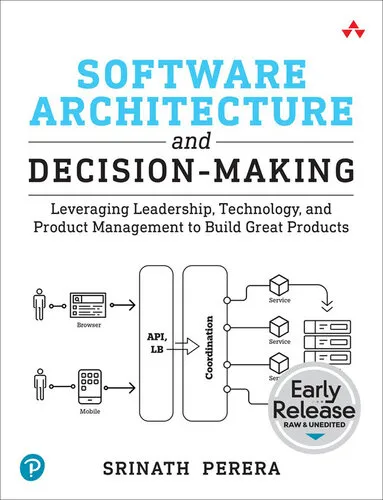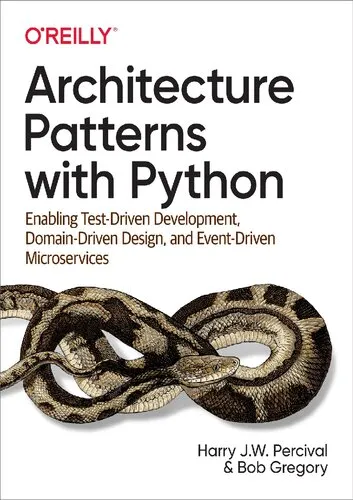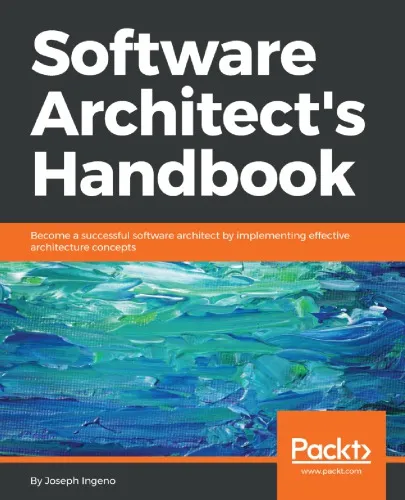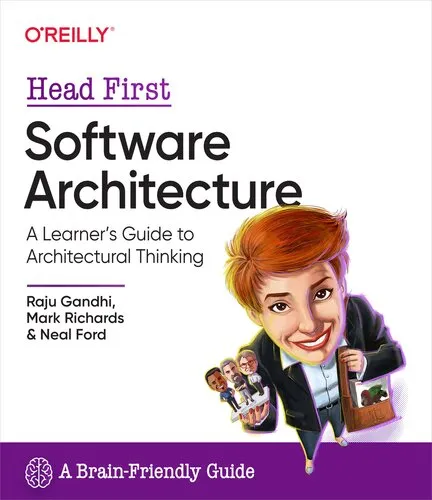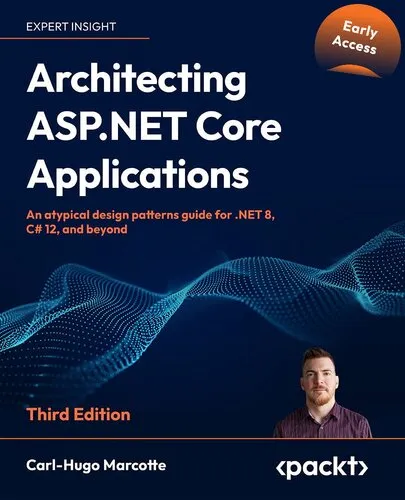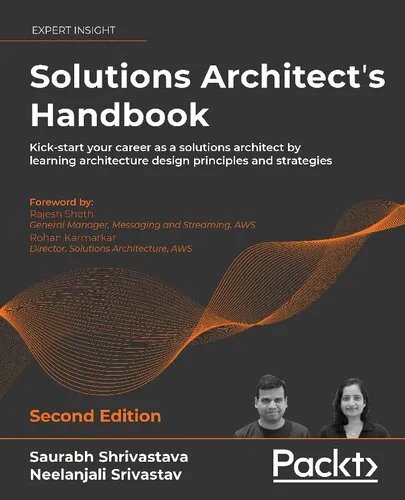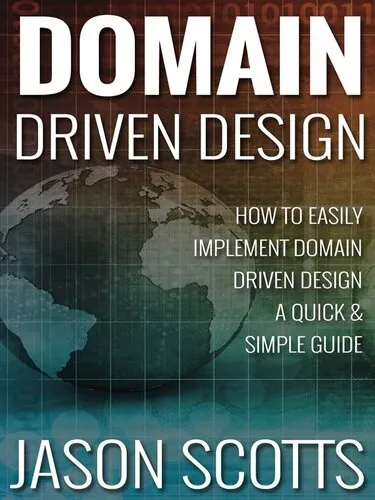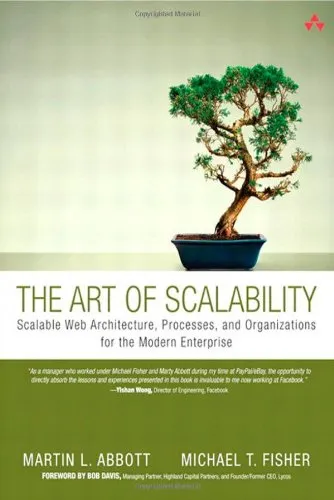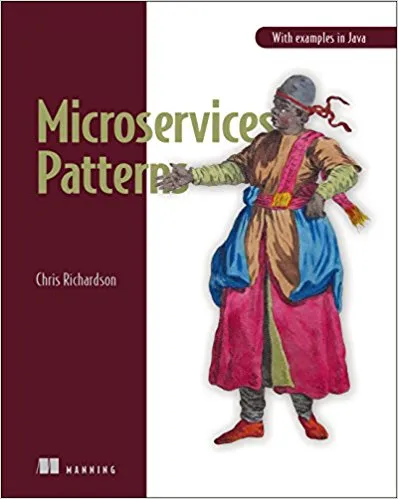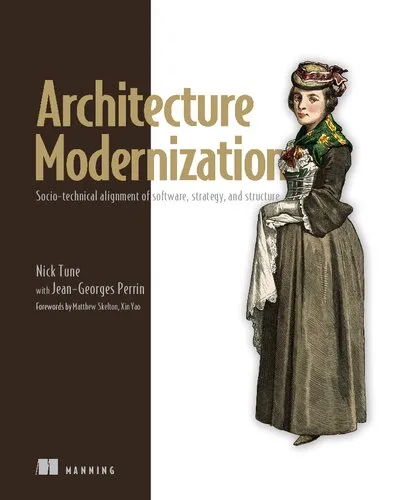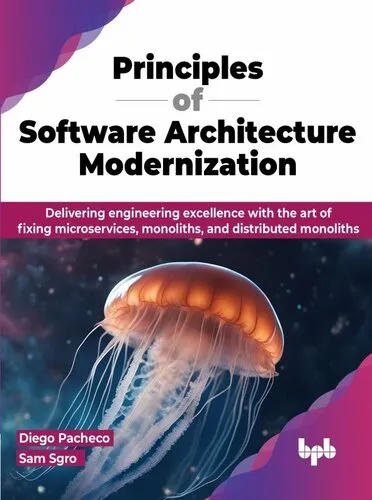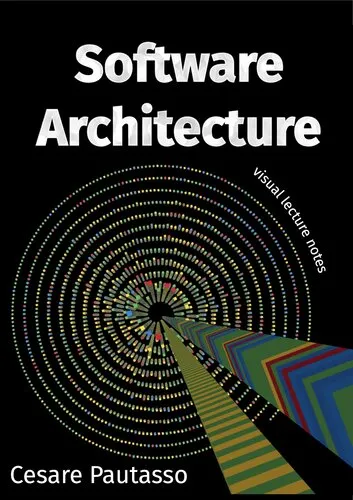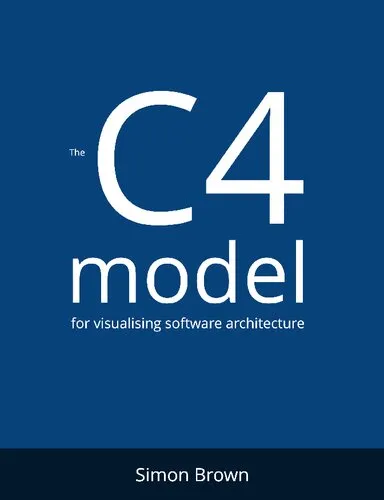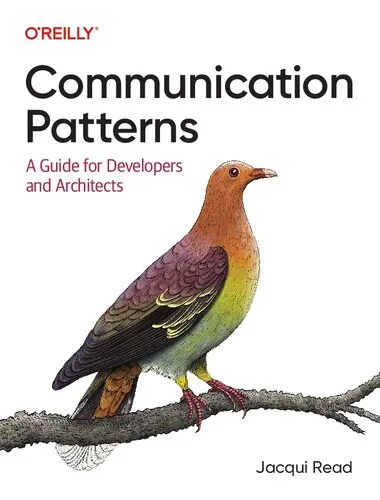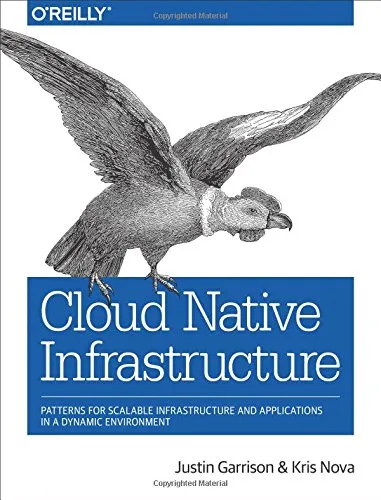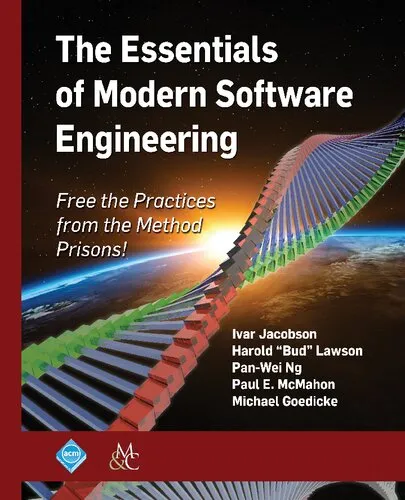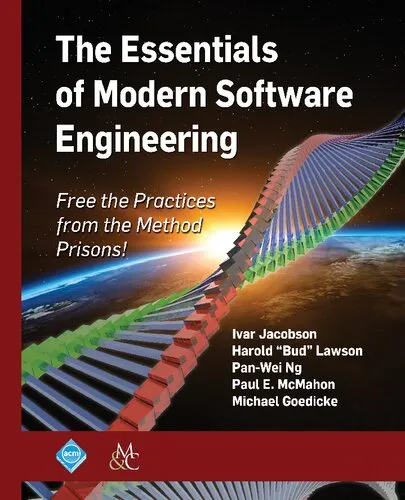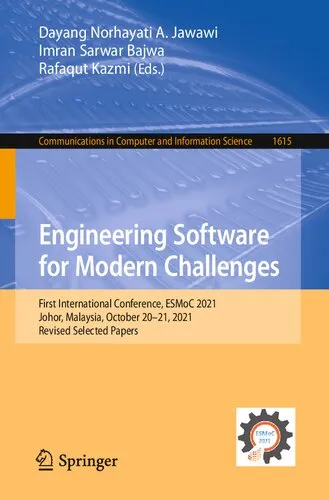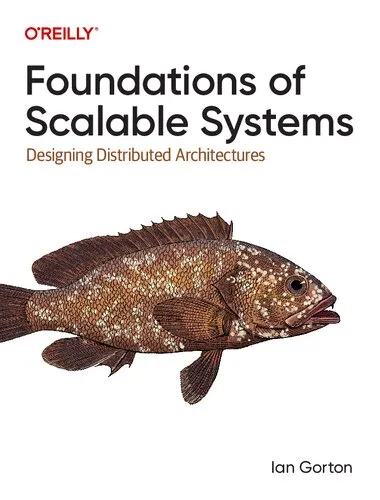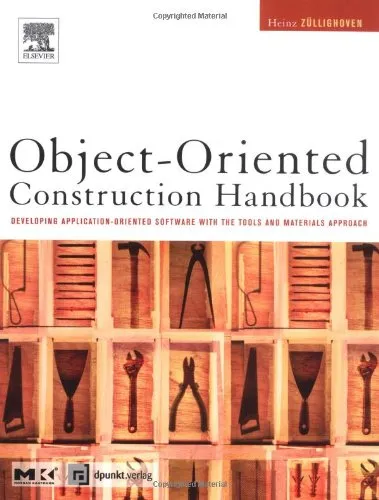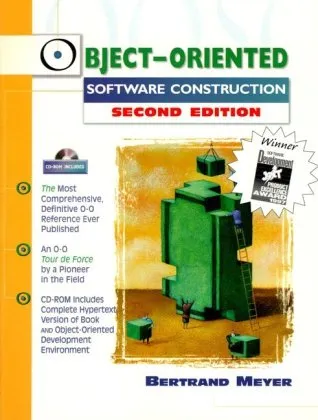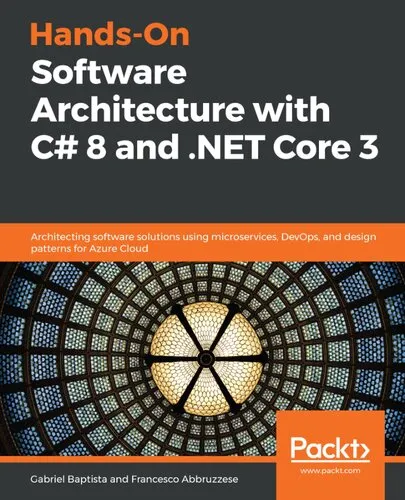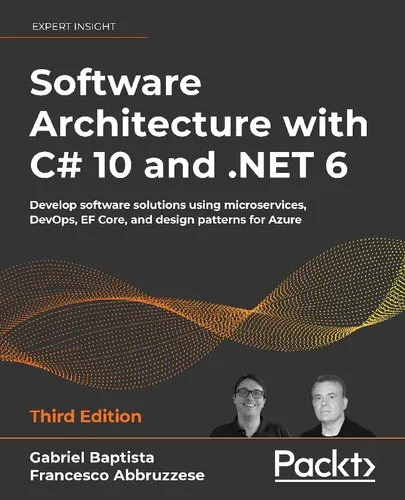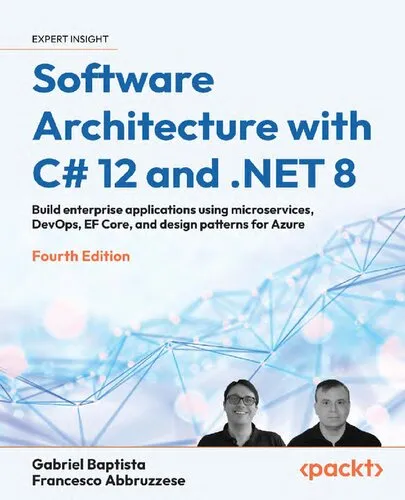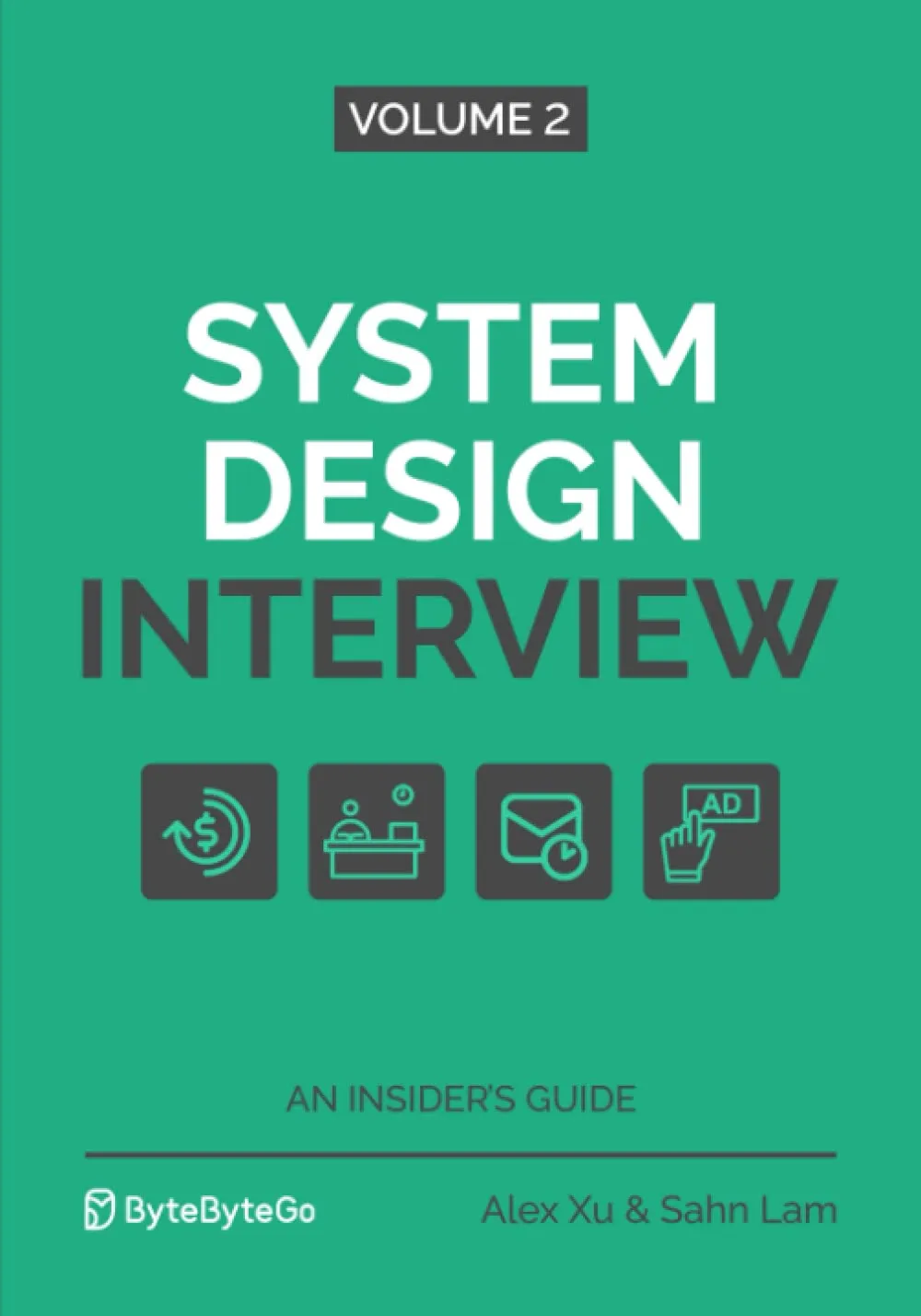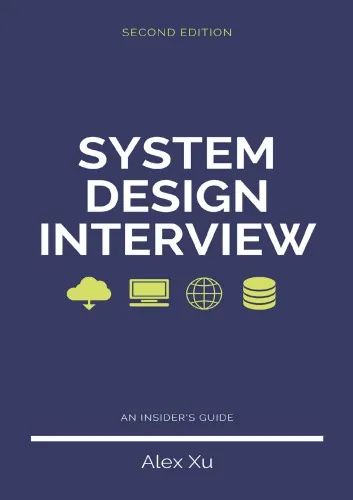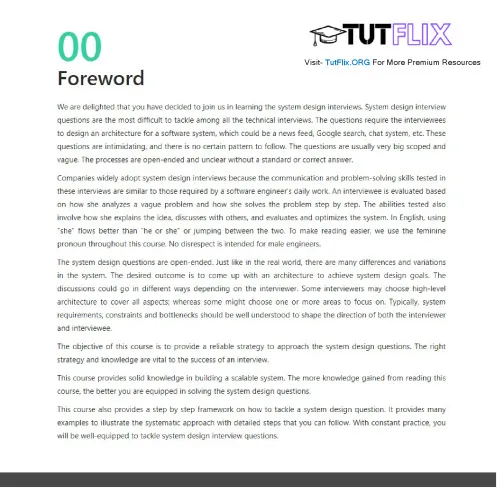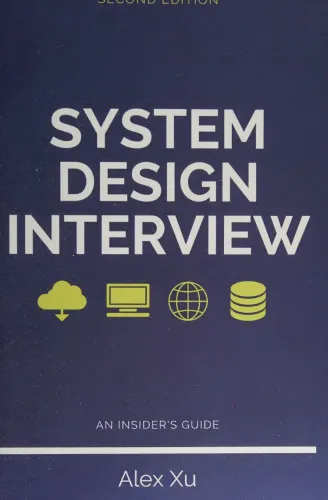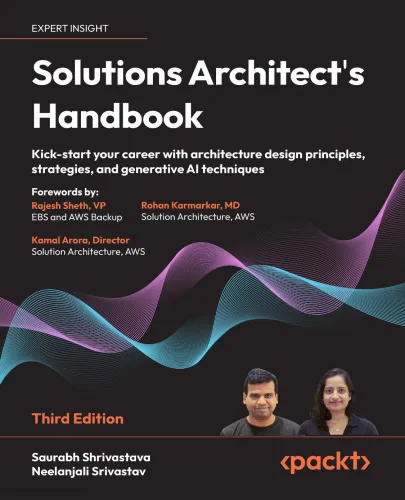Software Architecture: The Hard Parts: Modern Trade-Off Analyses for Distributed Architectures
4.7
بر اساس نظر کاربران

شما میتونید سوالاتتون در باره کتاب رو از هوش مصنوعیش بعد از ورود بپرسید
هر دانلود یا پرسش از هوش مصنوعی 2 امتیاز لازم دارد، برای بدست آوردن امتیاز رایگان، به صفحه ی راهنمای امتیازات سر بزنید و یک سری کار ارزشمند انجام بدینکتاب های مرتبط:
Persian Summary
معرفی کتاب
کتاب "Software Architecture: The Hard Parts: Modern Trade-Off Analyses for Distributed Architectures" نوشته Neal Ford، Mark Richards، Pramod Sadalage و Zhamak Dehghani به طور جامع به بررسی چالشهای معماری نرمافزار در سیستمهای توزیع شده میپردازد. این کتاب به تحلیل پیچیدگیهای طراحی و تصمیمگیری در توسعه سیستمهای نرمافزاری بزرگ و پیچیده میپردازد.
خلاصهای از کتاب
کتاب "Software Architecture: The Hard Parts" راهنمایی است برای مهندسان نرمافزار و معماران سیستمها که به دنبال راهحلهایی برای چالشهای پیچیده در سیستمهای توزیع شده هستند. این اثر به طور ویژه به موضوعات مهمی نظیر طراحی سیستمهای Microservices، مدیریت Data، و الگوهای پیادهسازی مختلف میپردازد.
نویسندگان با استفاده از مثالهای واقعی و کیساستادیهای متعدد، به بررسی تصمیمگیریهای معماری و trade-off های مختلف میپردازند. آنها نگاهی عمیق به موضوعات مهمی مانند انطباقپذیری، مقیاسپذیری و پایداری در سیستمهای پیچیده دارند. این کتاب به عمق مفاهیمی همچون Consistency، Availability، و Partition Tolerance (CAP theorem) نیز میکند.
نکات کلیدی کتاب
- تجزیه و تحلیل تصمیمات معماری و trade-off های مختلف در سیستمهای توزیع شده.
- بررسی الگوها و مفاهیم پیشرفته معماری نظیر Microservices و Event-driven architecture.
- توضیح درباره چگونگی مدیریت Data و حفظConsistency در سیستمهای مقیاسپذیر.
- مطالعه روشهای افزایش انطباقپذیری و مقیاسپذیری در سیستمهای نرمافزاری.
جملات معروف از کتاب
معماری نرمافزار شامل تصمیمات مهمی است که تاثیرات زیادی بر روی قابلیتهای فنی و تجاری سیستم دارد.
انطباقپذیری و مقیاسپذیری دو ستون اساسی در افزایش پایداری یک سیستم توزیع شده هستند.
چرا این کتاب مهم است
این کتاب به دلیل بررسی جامع و عمیق چالشهای معماری نرمافزار، بهویژه در سیستمهای توزیع شده، اهمیت خاصی دارد. نویسندگان با تجربه و دانش فنی بالا، دستورالعملها و بینشهای ارزشمندی را برای تصمیمگیریهای معماری ارائه میدهند که برای هر مهندس نرمافزار یا معمار سیستم حیاتی است. در دنیای امروزی که سیستمهای پیچیده و بزرگتر میشوند، داشتن مبنای قوی از تصمیمات معماری بسیار ضروری است.
Welcome to the introduction of "Software Architecture: The Hard Parts: Modern Trade-Off Analyses for Distributed Architectures," written by Neal Ford, Mark Richards, Pramod Sadalage, and Zhamak Dehghani. This book serves as both a compass and a roadmap for navigating the complex landscape of distributed architectures in software development. As technology evolves, so too do the intricacies of software design, making informed decision-making more critical than ever.
Detailed Summary of the Book
The book delves into the nuanced and challenging aspects of software architecture in an era defined by distributed systems. It is structured to guide architects through the delicate process of trade-off analysis, offering insights into balancing competing priorities such as performance, scalability, maintainability, and security. The authors draw from their extensive experience and expertise, supplying practical strategies and real-world examples to illustrate the myriad trade-offs architects face.
This work emphasizes the 'hard parts' of architecture, those areas where solutions are not straightforward. Topics include managing boundaries through service granularity, handling data distribution, ensuring effective integration, and addressing emergent communication patterns. By presenting rigorous methodologies and patterns, the book prepares architects to tackle the intricacies of modern software design.
Key Takeaways
- Understand how to perform effective trade-off analysis in distributed architectures.
- Learn best practices for managing service boundaries and granularity.
- Gain insights into data distribution challenges and solutions.
- Explore strategies for maintaining architectural agility in the face of changing demands.
- Grasp the importance of communication patterns and their impact on system design.
Famous Quotes from the Book
"The hallmark of great architecture is the ability to handle complexity and balance competing priorities."
"In the realm of distributed systems, no decision is cost-free. Every choice bears implications that must be carefully weighed."
Why This Book Matters
In today's fast-evolving technological landscape, maintaining architectural coherence in distributed systems is both a necessity and a challenge. "Software Architecture: The Hard Parts" is a seminal text that provides essential knowledge for anyone involved in architectural decision-making. This book matters because it shifts the focus from simple advice towards a structured approach to handling complex architectural dilemmas. It encourages architects to think critically, evaluate trade-offs rigorously, and understand the cascading effects of their decisions. Moreover, the expertise of authors Neal Ford, Mark Richards, Pramod Sadalage, and Zhamak Dehghani ensures that readers are learning from some of the best minds in the field.
For software architects striving to excel in the realm of distributed systems, this book is an indispensable resource, equipping them with the frameworks and insights needed to build robust, scalable, and maintainable architectures. In a world where the stakes are high and the demand for high-quality software solutions never ceases, understanding and mastering the hard parts of software architecture is more crucial than ever.
دانلود رایگان مستقیم
شما میتونید سوالاتتون در باره کتاب رو از هوش مصنوعیش بعد از ورود بپرسید
دسترسی به کتابها از طریق پلتفرمهای قانونی و کتابخانههای عمومی نه تنها از حقوق نویسندگان و ناشران حمایت میکند، بلکه به پایداری فرهنگ کتابخوانی نیز کمک میرساند. پیش از دانلود، لحظهای به بررسی این گزینهها فکر کنید.
این کتاب رو در پلتفرم های دیگه ببینید
WorldCat به شما کمک میکنه تا کتاب ها رو در کتابخانه های سراسر دنیا پیدا کنید
امتیازها، نظرات تخصصی و صحبت ها درباره کتاب را در Goodreads ببینید
کتابهای کمیاب یا دست دوم را در AbeBooks پیدا کنید و بخرید
3198
بازدید4.7
امتیاز3
نظر98%
رضایتنظرات:
4.7
بر اساس 3 نظر کاربران
saravanakumar5
15 اکتبر 2024، ساعت 18:19
Welcome to the introduction of "Software Architecture: The Hard Parts: Modern Trade-Off Analyses for Distributed Architectures," written by Neal Ford, Mark Richards, Pramod Sadalage, and Zhamak Dehghani. This book serves as both a compass and a roadmap for navigating the complex landscape of distributed architectures in software development. As technology evolves, so too do the intricacies of software design, making informed decision-making more critical than ever.
saleem
5 می 2025، ساعت 0:10
One of the best books on micro services architecture
paras
25 جولای 2025، ساعت 12:44
This book is amazing.
Questions & Answers
Ask questions about this book or help others by answering
No questions yet. Be the first to ask!
